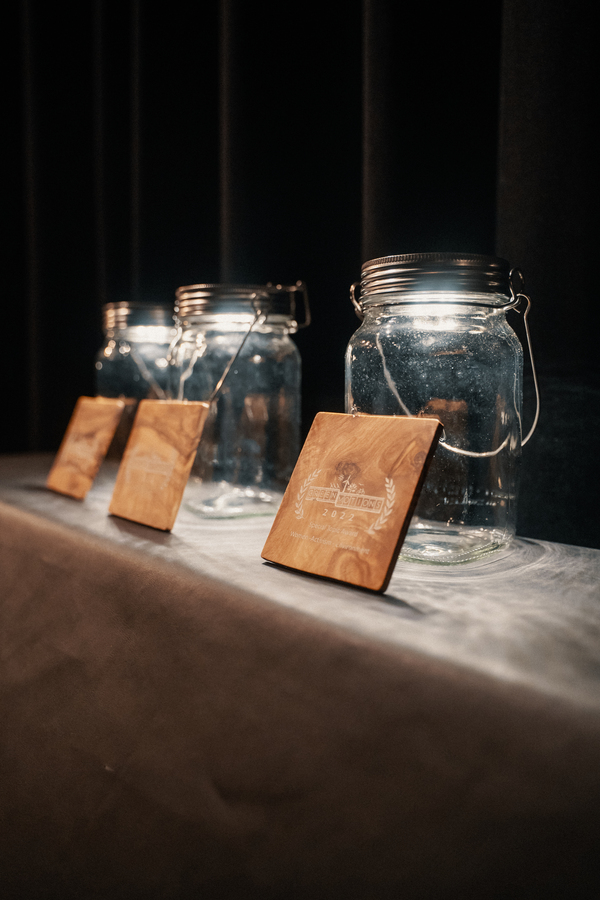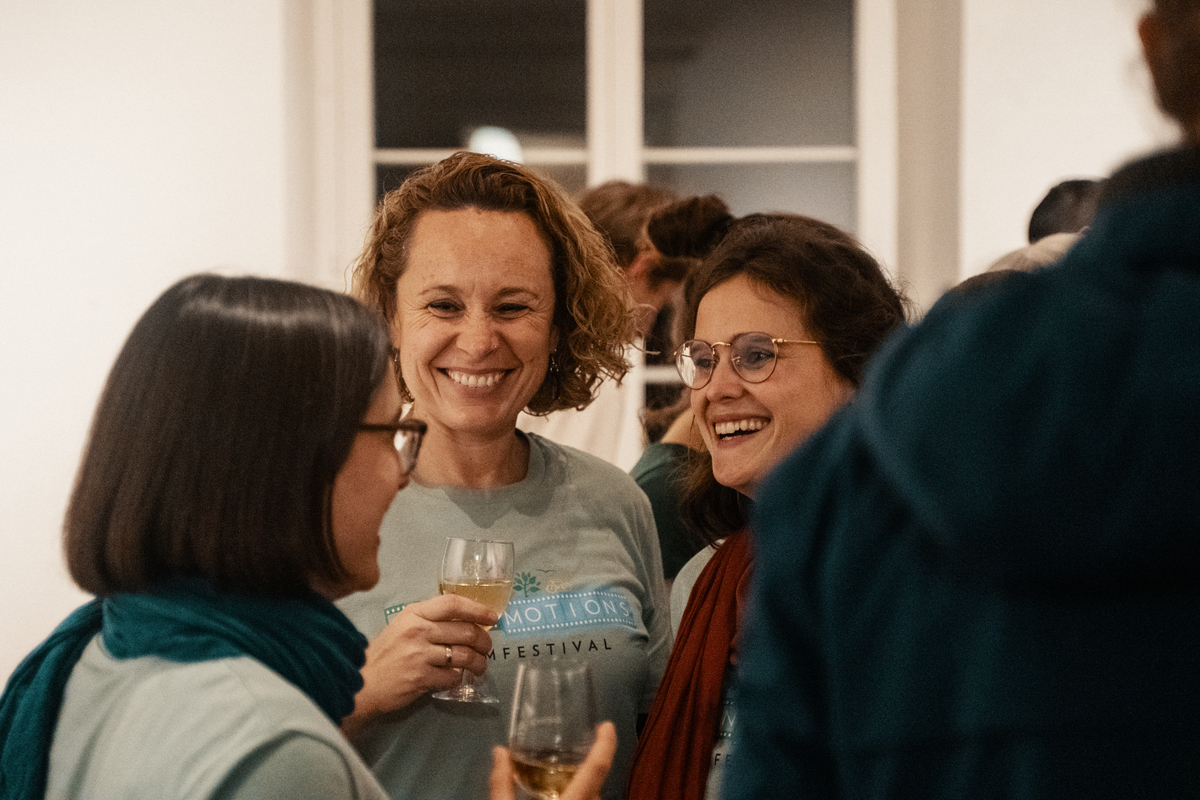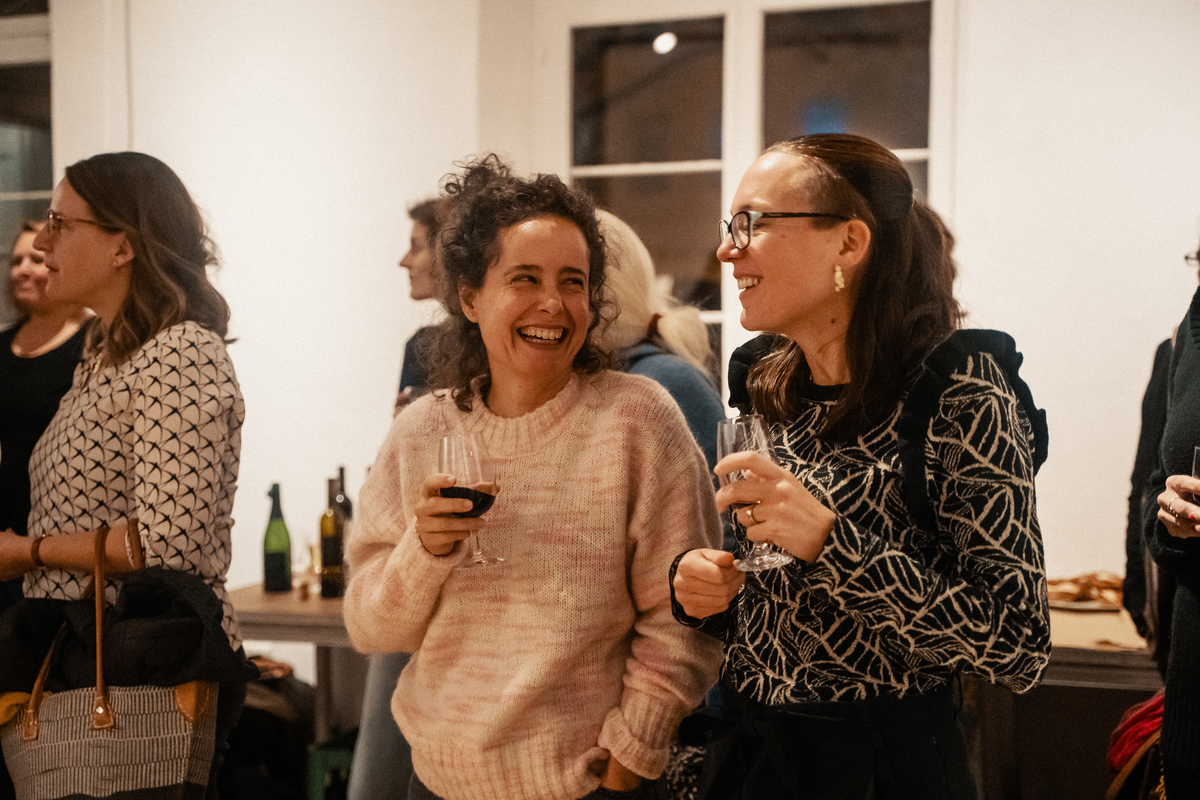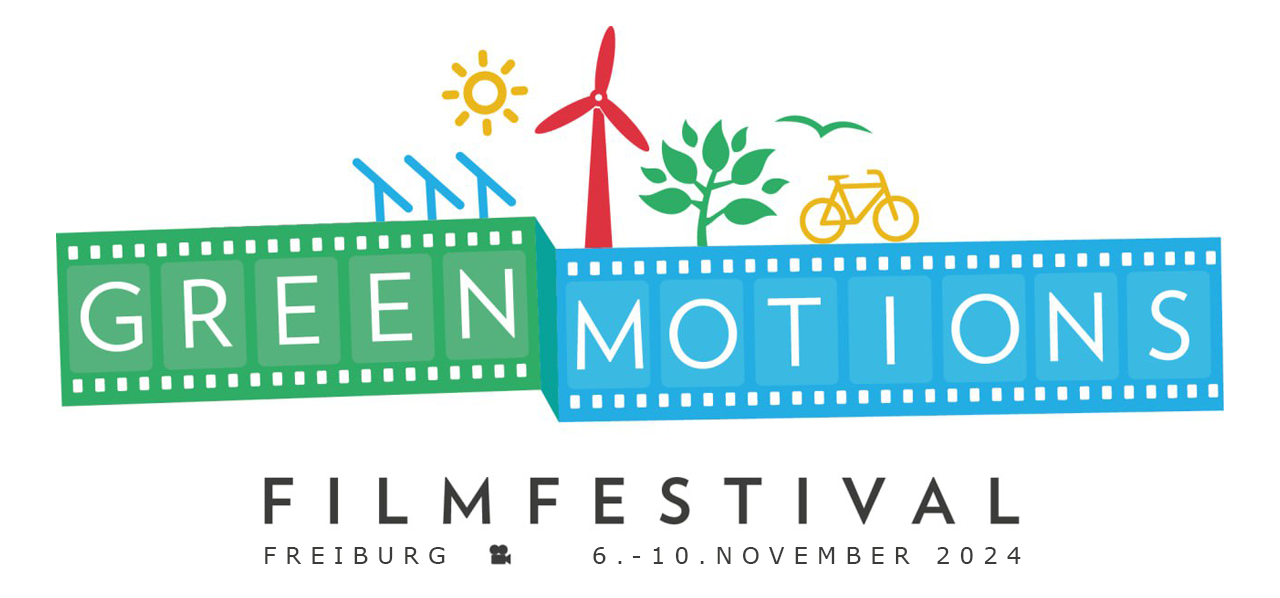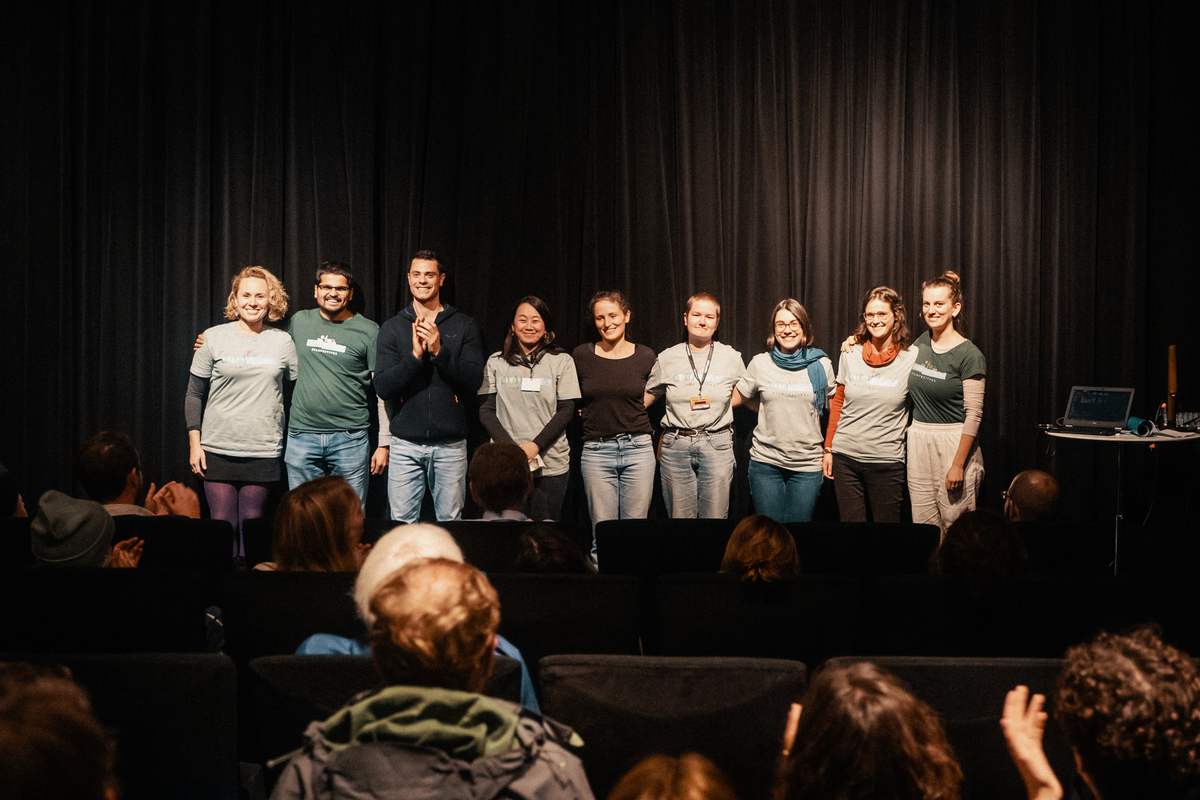From 9th to 13th November, the 8th edition of the Greenmotions Film Festival took place at the municipal cinema at the Alter Wiehrebahnhof in Freiburg this year. We showed inspiring films covering different topics around sustainability, often accompanied by live discussions or video interviews with filmmakers, offered an exciting workshop and a delicious food-saving buffet. All in all, we were able to welcome 559 visitors over five days.
We would like to thank all helpers, cooperation partners, sponsors and everyone who contributes every year to make this wonderful festival possible!
With the 8th Greenmotions Film Festival we placed special emphasis on the topic “Women – Environment – Activism”. All other feature films that didn’t belong to the special topic took part in our “Audience Favourite” competition.
The festival was opened on Wednesday, November 9th, with the films “Montagne di Plastica” by Manuel Camia and “La quête du silence” by Julien Guéraud. The latter covers the topic noise pollution by following the sound engineer Boris Jollivet on his quest for the very rare places of true silence in France.

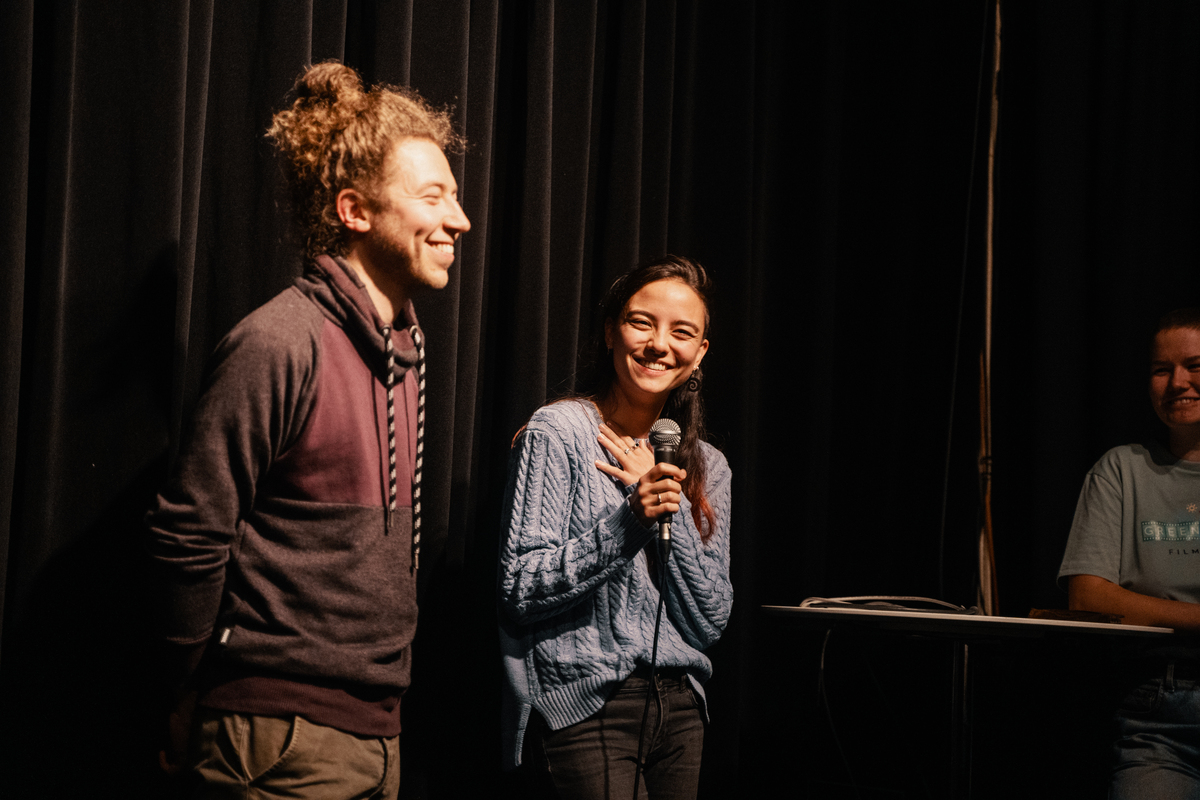
Tuesday’s program started with “Der unberechenbare Faktor“ by Christian Belz, shedding light on the climate crises and why our societies still struggle to face this crises with appropriate action. Christian Belz and the producer Bonina Mußmann were present during the screening and answered questions from the audience after the movie. Afterwards, the film “The Mushroom speaks” was screened in the gallery of the cinema. The filmmaker Marion Neumann was virtually present for a video interview after the movie.
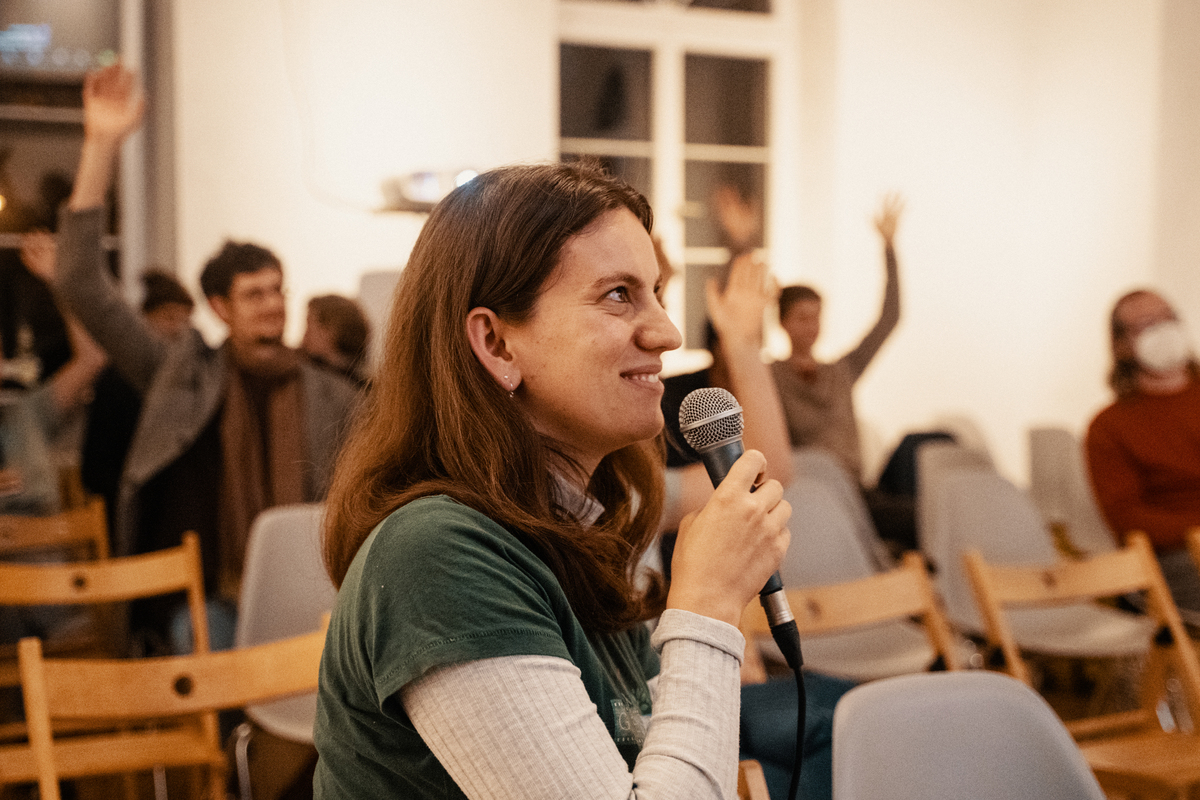
The next day of the festival was opened by two Brazilian films. The first one was “O Jardineiro da Floresta” by Bárbara Cal, reporting on the situation of the Muriquis, an endangered species of monkeys in the Atlantic Forest in Brazil and the efforts for their conservation. After the movie, there was a discussion with Dr. Fabiano Rodrigues de Melo, Biologist and Professor of the Forest Engineer Department at the Federal University of Viçosa. The second movie of the day was “Descarte”. The film focused on the social drama of solid waste in Brazil and portrayed different artists, designers, artisans and activists who take action in facing this problem, for example by transforming recyclable materials. After the film, there was a video discussion with the filmmaker Leonardo Brant.
After the Brazilian movies, the first two movies of the special topic category were screened: “Tornar a començar” by Anna Cabré Albós and Isaac Liupiañez Fontanet and “The Ants and the Grasshopper” by Raj Patel and Zak Piper. The first movie accompanies climate physicist and oceanographer Dr. Anna Cabré Albós to the Homeward Bound 2019, a pioneering training and empowerment program for women that aims to create a global network of scientists working for planetary sustainability. The second movie shows the story of Anita Chitaya, who travels from her home country Malawi to the USA to convince climate skeptics that climate change is real. “The Ants and the Grasshopper” was one out of two movies who were awarded with this year’s special topic award. Congratulations! Both Anna Cabré Albós and Raj Patel were present for a video interview after the screening of their movies.
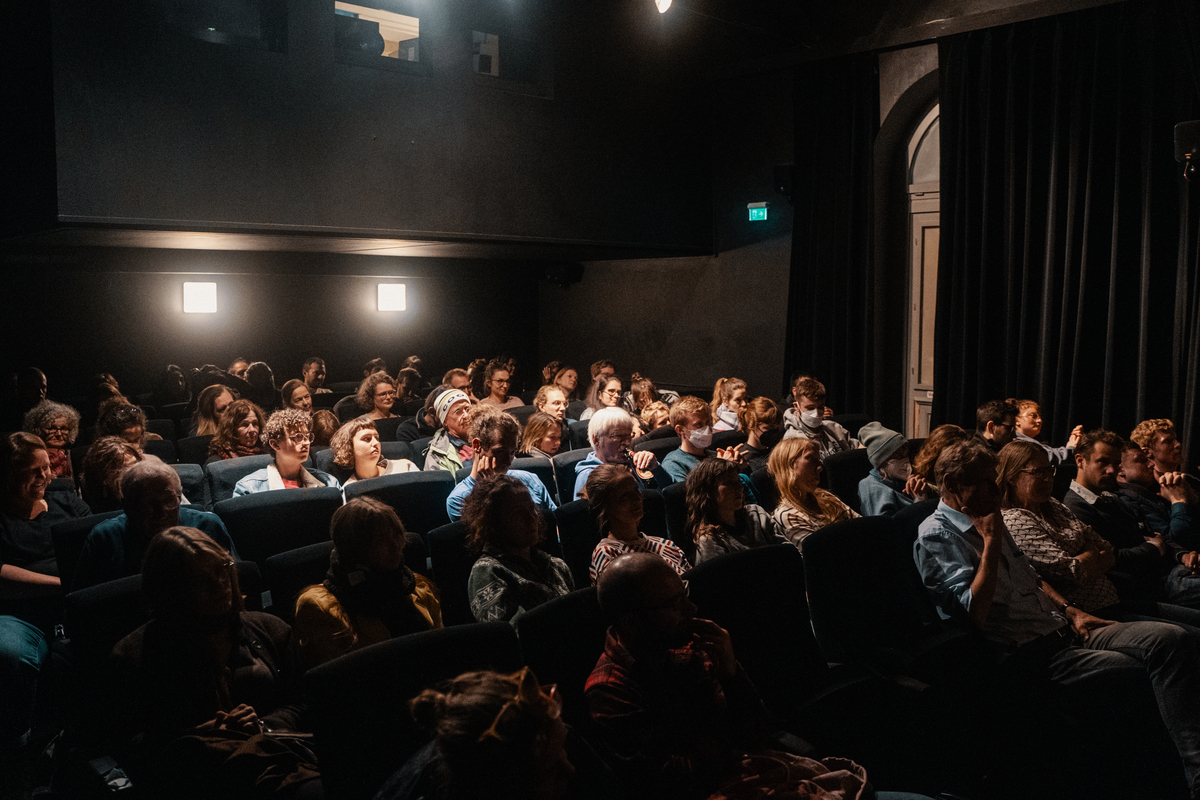
The Saturday began with the workshop “Activism or how do we act collectively for social change?” by Laure Kervyn from the Greenmotions Team and Leonie Meder from StadtWandler Freiburg.
After the workshop, the film program of the day started with “Amuka”, a film about people from Congo who organize in food cooperatives to be able to compete economically with international food corporations and make a decent living from their work as farmers. The film maker Antonio Spano was present via video call after the movie to participate in a discussion with the audience.

Following “Amuka”, four more movies of the special topic category were screened, in each case one shorter and one longer film with a similar topic in one session. The first session included “Tarcila: Indigenous Solutions to Climate Change from Peru” by Sarah Muck and “Mama Irene – Healer of the Andes”, which portrays the remarkable healer Irene from the Andes region in Peru. After the screening, there was a video interview with Elisabeth Möhlmann and Bettina Ehrhardt, the film makers of “Mama Irene”. The film was the second one to be awarded with this year’s special topic award. Congratulations! The second special topic session combined “Ojo Rojo” by Carme Gomila, which shows the protest of Moroccan women, who pick strawberries in Huelva and fight against north to south global extractivism and racial capitalism; and “La Lucha Sigue” by Sam Vinal, which reports on Indigenous struggles in Honduras, where Lenca and Garífuna people try to protect their land and existence against state backed megaprojects and face massive oppression.
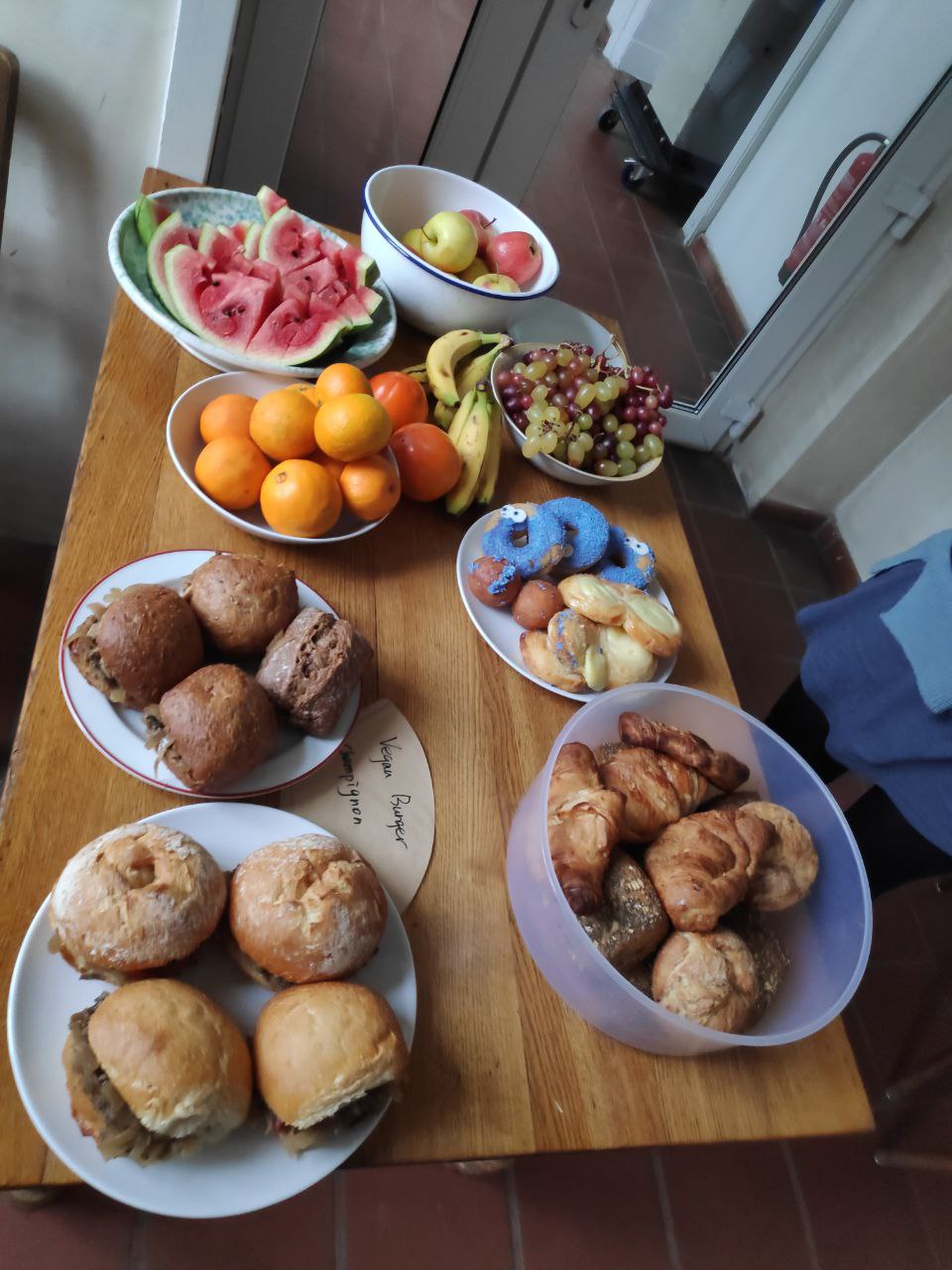
The last day of the festival began on Sunday with a foodsharing buffet that was served was very well received. With full stomachs, our guests were able to enjoy the documentary “Die Stangenbohnen Partei”, a portray about an Australian/US-American living on a farm in the German Allgäu and following their passion to live of making music and provide unconditional basic food (self-grown vegetables) to others. The audience was afterwards able to participate in a discussion with the filmmaker Paddy Schmitt, who was present during the screening. The movie “Die Stangenbohnen Partei” was later elected for this year’s Audience Award. Congratulations!
The next movie in the program was “Living in a Postcard” by Christian Nicoletta, covering the problem of and possible solutions for over tourism in different touristic hot spots around the world. This screening was also followed by a video discussion with the film maker. The last feature movie of the festival was “Aya” by Simon Coulibaly Gillard. The film tells the story of a young woman who lives on an Island at the Ivory Coast which is doomed to disappear because of the rising sea level.
For the end of the weekend, there was a short film evening followed by an award ceremony. After the selected short films were shown and moderated by the Freiburg journalist Bernward Janzing, the winning movies were announced. The most beautiful short films and the best documentaries were honored in the categories “Audience Favourite” and “Special topic: Women – Environment – Activism”. The short film jury consisted of the Freiburg filmmakers Nina Baermann (editor), Carolin Salvamoser (member of the Salvamoser Foundation Board of Trustees), Bernward Janzig (journalist) and Sigrid Faltin (filmmaker). Daniela Schaffart (documentary filmmaker) and Eva Maria Kühling (filmmaker) and Maud Rouxel (filmmaker) chose the best film in the special topic category.
The festival ended with a drink offered by Andreas Dilger and brazilian live music by Pedro Bortoluzzi and Marc Noller.
Photos: Stefan Hipp
